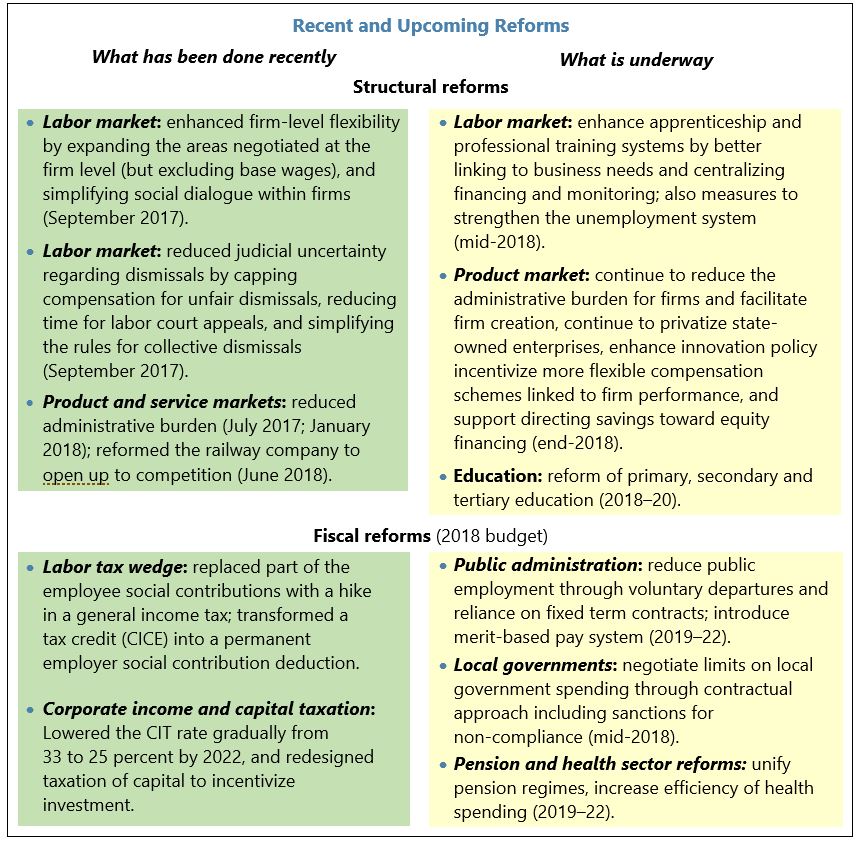
Image de Paris. Avec le rebond de la croissance, le gouvernement a accéléré le rythme des réformes (photo : Newscom/Charles Platiau).
France: Repairing the Roof While the Sun Shines
July 26, 2018
France has benefited from a broad recovery, supported by favorable external conditions, and recent and ongoing domestic reforms. In its latest report on the health of the French economy, the IMF says that the growth momentum is an opportunity to further advance the government’s ambitious reform agenda to ensure that the recovery is job rich and long lasting, while building buffers against shocks.
France is among countries which seem to have taken to heart the IMF's advice to "repair the roof while the sun is shining." As growth has rebounded, the government has shifted reforms into a higher gear over the last year. It has enacted a number of comprehensive reforms, from taxation, education, and the labor markets, to a recent reform of the railway system.
Further key reforms are in train to be legislated this year, including a revamp of the professional training and apprenticeship programs and unemployment insurance, and improvements to the business environment, to reduce unemployment and support competitiveness.
The government has also committed to put public debt on a downward path by reforming public spending.
IMF recommendations to advance France's agenda
Given this head start, France is well positioned to advance its agenda aimed at addressing remaining structural challenges to boost jobs and make the recovery more durable, while also building up resilience to shocks. The IMF report offers a number of recommendations in this regard.
- Durably reducing unemployment: The authorities need to implement the remaining planned reforms of the training and apprenticeship systems to reduce skills mismatches, lower structural unemployment, and improve job opportunities for disadvantaged groups. Further measures could be considered to better align wages with productivity, reinforce training for youth, and strengthen work incentives of the unemployment system.
- Lowering regulatory barriers: To help firms grow, innovate, and create jobs, the authorities need to implement planned measures to support the business environment and innovation (included in the draft "Loi Pacte"). Going further in liberalizing regulated professions (for example, pharmacies) could reduce costs and improve quality and consumer choice.
- Reducing public debt: Spending reforms at all levels of the government are urgently needed to achieve this. These could include better targeting of social benefits, improving the efficiency of the public administration, healthcare, and local governments, and reforming the pension system. To support the credibility of the strategy, reforms will need to be specified early, starting with the 2019 budget.
- Strengthening private-sector balance sheets: The authorities have taken macroprudential measures aimed at addressing vulnerabilities associated with the increase in corporate debt. Looking forward, efforts should continue to further strengthen financial sector resilience by implementing ongoing changes and continuing to use macroprudential policies preemptively.



